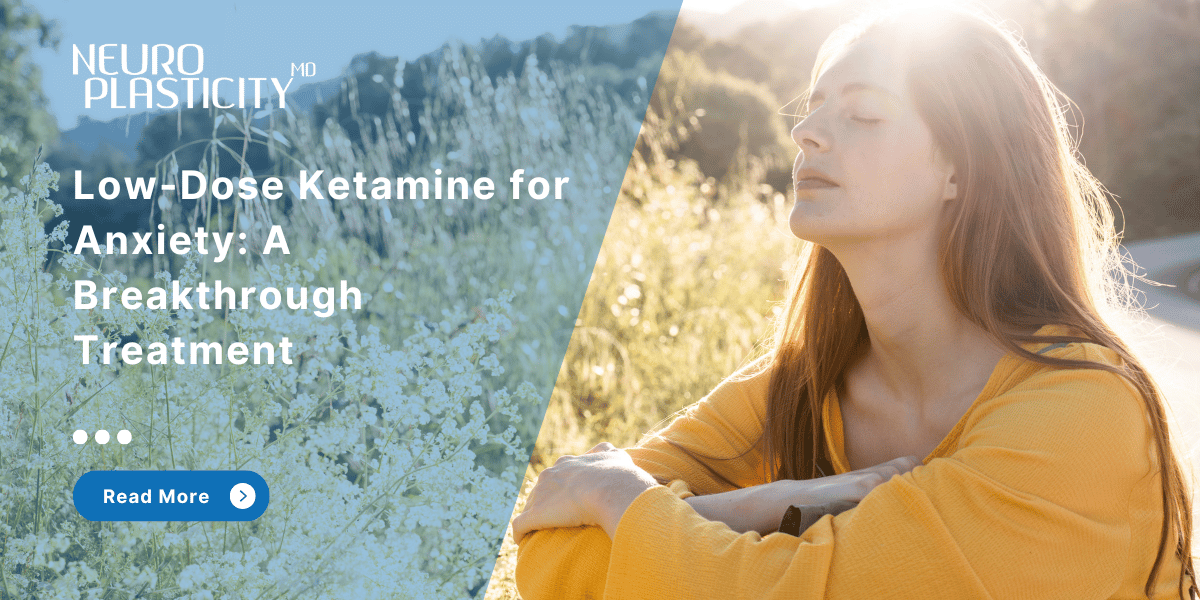Ketamine Treatment for Depression: Fast-Acting Relief & Expert Care For...
Continue Reading
Many individuals find temporary relief from anxiety through prescription medications. However, traditional anxiety treatments do not work for everyone and can sometimes cause adverse effects. Recent research highlights ketamine as a potentially safer and more effective alternative for managing anxiety disorders.
Originally developed as an anesthetic, ketamine for anxiety is well known for its dissociative effects. However, its potential as a psychedelic therapy has gained increasing attention. When administered in subanesthetic doses, ketamine can induce altered states of consciousness, raising the question: Should ketamine for anxiety be considered a psychedelic?
The classification of ketamine as a psychedelic is widely debated. Unlike classical psychedelics like LSD, psilocybin, and DMT, which primarily act on serotonin receptors, ketamine for anxiety treatment works on the brain’s glutamate system and NMDA receptors. This unique mechanism enhances synaptic plasticity and neural communication, contributing to its rapid-acting therapeutic effects.
Despite its distinct pharmacological action, ketamine shares neurobiological and experiential similarities with classical psychedelics. Many researchers advocate for its recognition as a psychedelic medicine due to its success in psychedelic-assisted therapy.
For example, a controlled clinical trial demonstrated ketamine-assisted psychotherapy’s effectiveness in treating alcoholism. The study found that 65.8% of patients receiving ketamine for anxiety treatment achieved total abstinence for over a year, compared to just 24% in the control group. These findings reinforce ketamine’s therapeutic value and support its classification as a psychedelic medicine.
Ketamine produces unique effects distinct from those of classical psychedelics. In subanesthetic doses, it induces a sense of detachment, alters perception of time and space, and can even lead to out-of-body experiences. Unlike traditional psychedelics, which directly stimulate pyramidal cells in the brain, ketamine relaxes chandelier cells, allowing for enhanced neural connectivity.
This unique action has shown promise in treating depression. A study published in JAMA Psychiatry found that ketamine infusion therapy significantly reduced symptoms in individuals with treatment-resistant depression. Notably, ketamine’s effects were more pronounced in those who had not responded to conventional antidepressants.
Another advantage of ketamine for anxiety treatment is its real-time dose control. Clinicians can adjust doses to tailor treatment to each patient’s needs. Its dissociative effects may be particularly beneficial for individuals with trauma, as they allow the brain’s defensive mechanisms to lower, facilitating emotional processing and healing.
Understanding the distinction between classical psychedelics (LSD, psilocybin) and non-classical psychedelics like ketamine is crucial. While classical psychedelics strongly interact with serotonin receptors and produce intense, transformative experiences, ketamine has a gentler nature, making it particularly effective for anxiety and depression treatment.
For individuals with severe anxiety, ketamine’s calming dissociative effects provide a more manageable alternative to classical psychedelics, which can be emotionally overwhelming. This distinction helps healthcare professionals design tailored treatments based on individual patient needs.
Despite some stimulating effects, ketamine is not classified as a stimulant. Traditional stimulants like amphetamines increase alertness and energy, whereas ketamine’s dissociative effects create a sensation of detachment and relaxation. Understanding this difference ensures a clearer picture of its pharmacological profile and therapeutic uses.
Ketamine has gained recognition as a groundbreaking treatment for depression and anxiety. Research shows its rapid-acting benefits in reducing depressive symptoms and improving overall mental well-being. However, ketamine therapy should only be administered under medical supervision to ensure safety and effectiveness.
A study published in The Journal of Clinical Psychiatry found that ketamine infusion therapy led to significant and rapid reductions in suicidal thoughts in individuals with major depressive disorder. The effects were noticeable within hours and lasted up to seven days after a single infusion, making ketamine a potentially life-saving intervention for individuals in crisis.
Ketamine therapy has demonstrated potential in treating post-traumatic stress disorder (PTSD). Traditional PTSD treatments focus on symptom management, while ketamine facilitates the processing of traumatic memories by inducing a dissociative state. This temporary detachment helps individuals integrate and resolve traumatic experiences more effectively.
By incorporating ketamine into psychedelic therapy practices, mental health professionals can offer a broader range of treatment options, promoting deeper emotional healing and personal growth.
Ketamine therapy is legally approved for depression treatment Fort Lee in the United States. However, it must be administered under professional supervision to ensure proper dosing and minimize risks. At Neuroplasticity MD, we carefully assess each patient’s medical history and medication interactions to ensure ketamine therapy is a safe and viable option.
Neuroplasticity MD employs a microdosing approach to ketamine therapy, distinct from recreational high doses that induce intense dissociation or the “k-hole” effect.
Our psycholytic dosing method involves low daily doses that promote openness and relaxation without significantly altering consciousness. This encourages neural rewiring, helping patients develop healthier thought patterns and reduce reactive behaviors.
Patients typically start with 10-20mg daily, gradually increasing the dose as needed. Unlike higher doses requiring monitored administration, our low-dose approach allows patients to take medication safely at home, eliminating the need for clinical supervision or “trip sitters.”
The debate over ketamine’s classification as a psychedelic continues, but its therapeutic benefits are undeniable. By offering unique dissociative effects and a rapid-acting mechanism, ketamine has transformed mental health treatment, particularly for individuals with anxiety, depression, and PTSD. When used responsibly under medical guidance, ketamine treatment New Jersey represents a groundbreaking advancement in mental healthcare, expanding treatment possibilities and providing new hope for those who have not found relief with traditional medications.
Ketamine Treatment for Depression: Fast-Acting Relief & Expert Care For...
Continue ReadingA New Look At How Ketamine Treatment Can Help with...
Continue ReadingKetamine Migraine Treatment: A Breakthrough in Lasting Migraine Relief Ketamine...
Continue ReadingDisclaimer: The medical information on this site is provided as an information resource only, and is not to be used or relied on for any diagnostic or treatment purposes. This information is not intended to be patient education, does not create any patient-physician relationship, and should not be used as a substitute for professional diagnosis and treatment. Always consult your healthcare provider before making any healthcare decisions or for guidance about a specific medical condition.